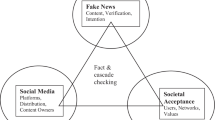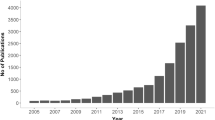Abstract
This paper argues that the development of global advertising has significant implications for the public health of less developed countries. These implications can be seen in three areas. First, it is clear that advertising and marketing of lethal or health-compromising products like alcohol and tobacco not only can increase the level of death and disease, but can also produce serious indirect effects upon families, communities, and entire societies. Second, advertising promotes a consumption ethic which can have far-reaching effects that go beyond individual behavior, significantly altering social relationships, and influencing public policies and allocation of scarce resources. Third, advertising can restrict the public's knowledge about health issues by substituting distorted and manipulative sales messages for vital, accurate health information. In addition, revenues from advertising are a primary support for many mass media systems and this further limits the presentation of critical information.
Similar content being viewed by others
Rights and permissions
About this article
Cite this article
Wallack, L., Montgomery, K. Advertising for All by the Year 2000: Public Health Implications for Less Developed Countries. J Public Health Pol 13, 204–223 (1992). https://doi.org/10.2307/3342814
Published:
Issue Date:
DOI: https://doi.org/10.2307/3342814




